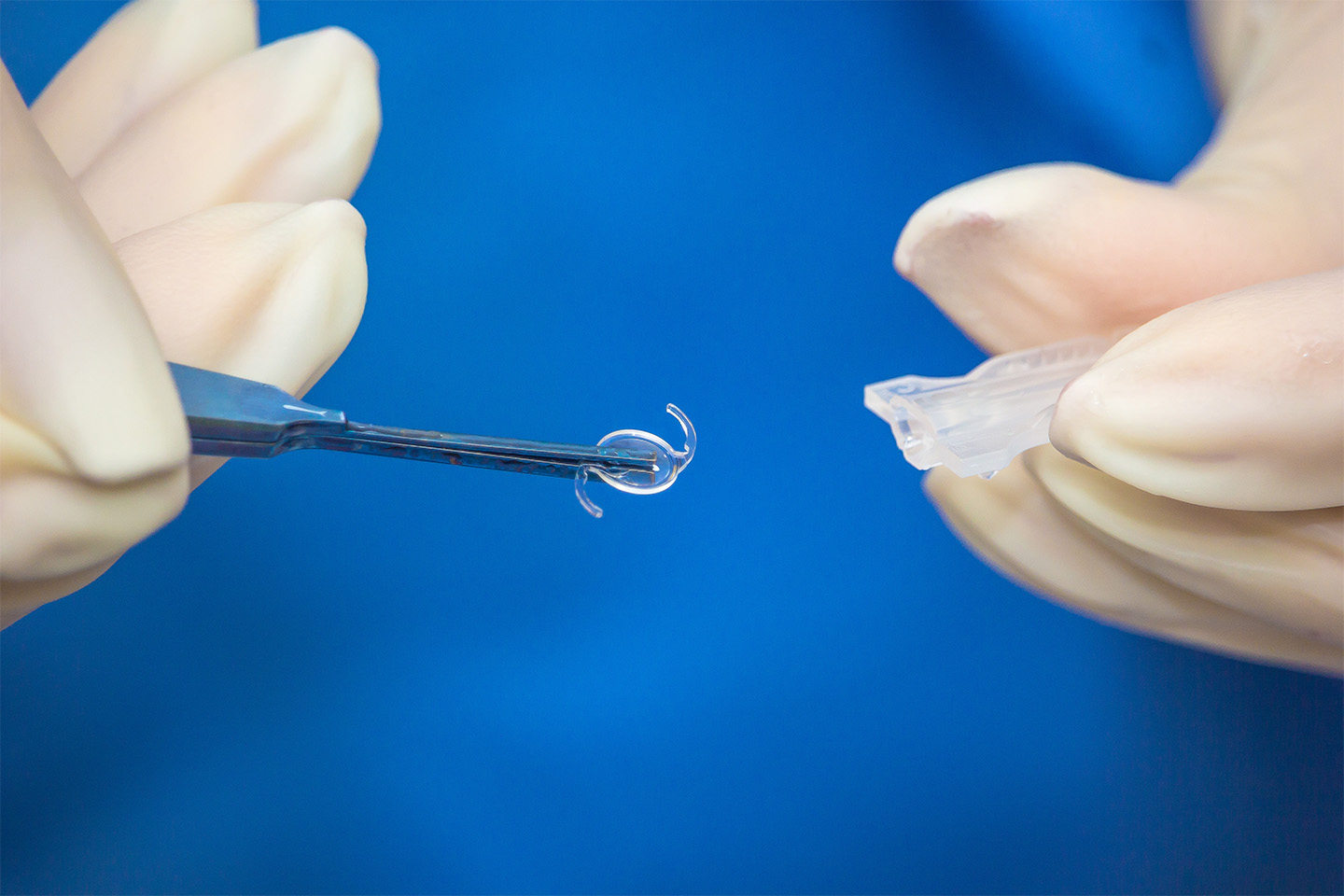Eye Care Series: Treatment of Keratoconus

Some eye conditions may inevitably threaten to steal your vision, like keratoconus. But it doesn’t have to! With swift and proper treatment, you can slow the progression of this condition and maintain your best vision. Continue reading for keratoconus treatment options available at each stage.
What is Keratoconus?
Keratoconus is a common, progressive eye condition impacting nearly 1 in every 2000 individuals. This disease stems from the thinning and bulging of the cornea—the clear covering of the eye. This deterioration changes the standard dome eye shape to a cone shape, which affects the way light enters the eye.
Over time, keratoconus can lead to a range of symptoms:
- Light sensitivity
- Glares/halos
- Blurring
- Clouding/worsening vision
- And eventually, vision loss.
Although there is no known cause for keratoconus, two main factors lead to this condition: weak collagen protein fibers and oxidative damage from a lack of antioxidants.
Keratoconus Treatment Options
Treatment for keratoconus varies, depending on the severity and speed of progression. All keratoconus treatment options focus on slowing its progression and improving your vision.
1. Corrective Lenses
In the mild to moderate stages of keratoconus, treatment typically involves updated contacts. These solutions simply fix the vision without slowing down the progression. At a certain point, about 5 to 10% of patients can no longer use contacts due to abnormal eye shape.
The eye doctors in Dallas may recommend one of these contact lenses:
- Rigid gas permeable (RGP) contacts — These are made to fit the irregularly shaped cornea. These contacts remain their shape on the eye to help decrease the eye’s natural curvature. Unlike soft contact lenses, RGP’s move on the eye with each blink.
- Piggyback lenses — Piggyback lenses help decrease the discomfort from hard lenses by layering a soft lens beneath the hard one.
- Hybrid lenses — Hybrid lenses feature a rigid center with a soft ring on the outer edges for increased comfort.
- Scleral lenses — Scleral contact lenses completely remove contact with the cornea. Instead, the lens sits on the white of the eye (the sclera), creating a gap between the lens and the cornea.
2. Corneal Cross-Linking
Corneal cross-linking (CXL) is a popular choice in those with quickly progressing keratoconus. This procedure slows or stops the progression, but it cannot reverse or improve the vision loss.
CXL involves placing riboflavin eye drops onto the cornea. Your eyes will then be exposed to UV light. Together, these steps strengthen the collagen protein fibers and stiffen the cornea to stabilize vision. Most patients still require glasses or contacts after this procedure.
There are two forms of corneal cross-linking—epithelium-on and epithelium-off. In epi-off, the thin outer layer of the cornea is removed, allowing the drops to better penetrate the cornea. In epi-on, the coating is left intact, decreasing chance of infection, reducing discomfort, and allowing for faster recovery.
Our ophthalmologists in Dallas will advise you on the best version for your condition.
3. Transplant Surgery
In patients with excessive scarring, extreme thinning, or advanced vision loss, even with the strongest prescription, surgery may be the best option.
Keratoplasty (corneal transplant) involves replacing the abnormal cornea with donor tissue. Your eye doctor in Dallas may suggest removing the full thickness of your cornea (penetrating keratoplasty) or preserving the inner lining (deep anterior lamellar keratoplasty).
Surgery has a 90% success rate, with 98% of transplants surviving year 1 and 97.5% of cases surviving through year 4. Drawbacks include graft rejection, infection, astigmatism, and in some cases, poor vision.
If you are beginning to experience visual changes associated with keratoconus, there’s no need to worry. Make an appointment with the experts in cataract and LASIK surgery in Dallas at Kleiman Evangelista Eye Centers. We are equipped to diagnose and treat your condition in the best way for you!









